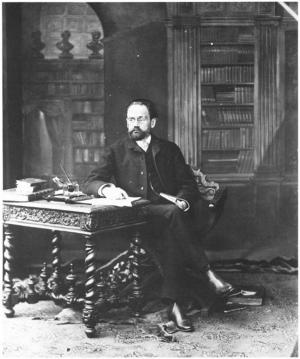The Adventures of Alphonso and Marina: An Interesting Spanish Tale
Nonfiction, Religion & Spirituality, New Age, History, Fiction & Literature| Author: | Jean-Pierre Claris de Florian | ISBN: | 9781465612649 |
| Publisher: | Library of Alexandria | Publication: | March 8, 2015 |
| Imprint: | Language: | English |
| Author: | Jean-Pierre Claris de Florian |
| ISBN: | 9781465612649 |
| Publisher: | Library of Alexandria |
| Publication: | March 8, 2015 |
| Imprint: | |
| Language: | English |
Marina, at seventeen, was the most admired beauty in Granada. She was an orphan, and heiress to an immense fortune, under the guardianship of an old and avaricious uncle, whose name was Alonzo, and who passed his days in counting ducats, and his nights in silencing serenades, nocturnally addressed to Marina. His design was to marry her, for the sake of her great fortune, to his own son, Henriquez, who had studied ten years in the university of Salamanca, and was now able to explain Cornelius Nepos tolerably well. Almost all the cavaliers of Granada were in love with Marina. As they could obtain a sight of her only at mass, the church she frequented was filled with great numbers of the handsomest and most accomplished youths of the country. One of the most distinguished among these, was Don Alphonso, a captain of cavalry, about twenty, not very rich, but of a family of the first distinction. Handsome, polite, and witty, he attracted the eyes of all the ladies of Granada; though he himself paid attention to none but Marina, who, not insensible to his attachment, began, on her part, to take notice of her admirer. Two months passed away without the lovers daring to speak; nevertheless, they silently said much. At the end of that time Don Alphonso found means to convey a letter to his mistress; which informed her of what she knew before. The reserved Marina had no sooner read this letter than she sent it back to Don Alphonso; but, as she possessed an excellent memory, she retained every word, and was able to return a very punctual answer, a week afterwards. A correspondence was now settled between the two lovers; but Don Alphonso was desirous to be still more intimate. He had long solicited permission to converse with Marina through her lattices. Such is the custom in Spain, where the windows are of much more use during the night than in the day. They are the places of rendezvous. When the street is vacant and still, the lover wraps himself up in his cloak, and, taking his sword, invokes love and night to favour him, and proceeds to some low lattice, grated on the side next the street, and secured on the inside by shutters.
Marina, at seventeen, was the most admired beauty in Granada. She was an orphan, and heiress to an immense fortune, under the guardianship of an old and avaricious uncle, whose name was Alonzo, and who passed his days in counting ducats, and his nights in silencing serenades, nocturnally addressed to Marina. His design was to marry her, for the sake of her great fortune, to his own son, Henriquez, who had studied ten years in the university of Salamanca, and was now able to explain Cornelius Nepos tolerably well. Almost all the cavaliers of Granada were in love with Marina. As they could obtain a sight of her only at mass, the church she frequented was filled with great numbers of the handsomest and most accomplished youths of the country. One of the most distinguished among these, was Don Alphonso, a captain of cavalry, about twenty, not very rich, but of a family of the first distinction. Handsome, polite, and witty, he attracted the eyes of all the ladies of Granada; though he himself paid attention to none but Marina, who, not insensible to his attachment, began, on her part, to take notice of her admirer. Two months passed away without the lovers daring to speak; nevertheless, they silently said much. At the end of that time Don Alphonso found means to convey a letter to his mistress; which informed her of what she knew before. The reserved Marina had no sooner read this letter than she sent it back to Don Alphonso; but, as she possessed an excellent memory, she retained every word, and was able to return a very punctual answer, a week afterwards. A correspondence was now settled between the two lovers; but Don Alphonso was desirous to be still more intimate. He had long solicited permission to converse with Marina through her lattices. Such is the custom in Spain, where the windows are of much more use during the night than in the day. They are the places of rendezvous. When the street is vacant and still, the lover wraps himself up in his cloak, and, taking his sword, invokes love and night to favour him, and proceeds to some low lattice, grated on the side next the street, and secured on the inside by shutters.















